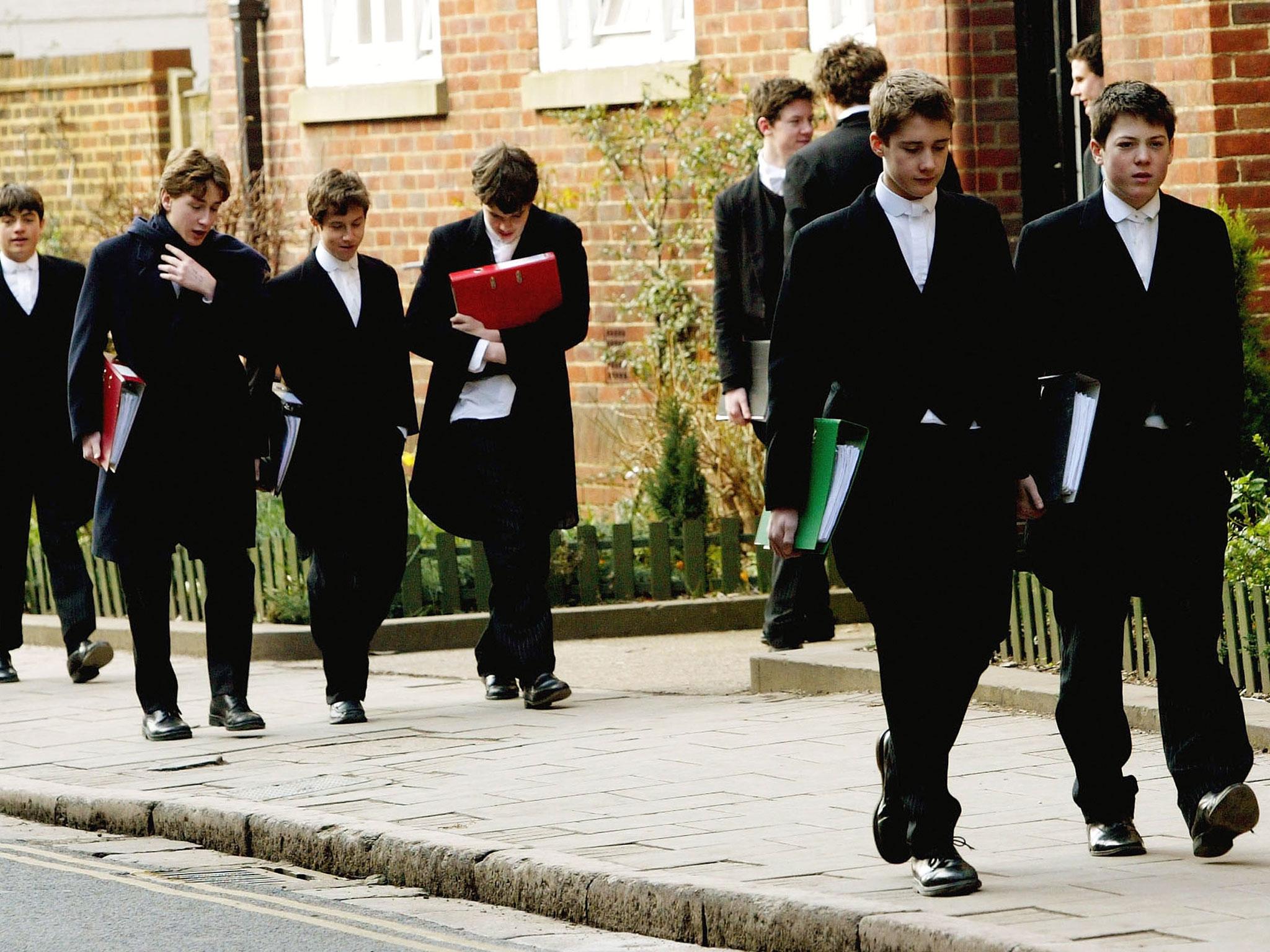People who attend these nine schools are 94 times more likely to join Britain's elite
So-called Clarendon Schools produce nearly 10 per cent of all 'Who's Who' entrants

Your support helps us to tell the story
From reproductive rights to climate change to Big Tech, The Independent is on the ground when the story is developing. Whether it's investigating the financials of Elon Musk's pro-Trump PAC or producing our latest documentary, 'The A Word', which shines a light on the American women fighting for reproductive rights, we know how important it is to parse out the facts from the messaging.
At such a critical moment in US history, we need reporters on the ground. Your donation allows us to keep sending journalists to speak to both sides of the story.
The Independent is trusted by Americans across the entire political spectrum. And unlike many other quality news outlets, we choose not to lock Americans out of our reporting and analysis with paywalls. We believe quality journalism should be available to everyone, paid for by those who can afford it.
Your support makes all the difference.Pupils from nine public schools are 94 times more likely to join Britain's powerful elite than their peers, researchers have found.
The privileged establishments, which include Eton and Westminster, produce nearly 10 per cent of all Who's Who entrants despite traditionally educating just 0.15 per cent of the population.
The study, conducted by researchers at the London School of Economics and published in the American Sociological Review, examined the past and present influence of the nine so-called Clarendon Schools: Charterhouse, Eton, Harrow, Merchant Taylor’s, Rugby, Shrewsbury, St Paul’s, Westminster, and Winchester College.
They studied the past 125 years of Who's Who, which lists the most prominent MPs, peers, senior civil servants and heads of museums and large arts organisations.
Although the schools' disproportionate influence had fallen since the start of the 20th century, the study found the decline had stalled in the past 16 years and they remain "extraordinarily powerful".
Of the UK's 54 prime ministers, 36 (67 per cent) were educated at one of the elite schools.
Even among Oxbridge graduates, alumni from the nine Clarendon Schools are around twice as likely to reach elite positions.
Dr Aaron Reeves and Dr Sam Friedman, the joint lead authors of the paper, said: “Although the Clarendon schools have not always been the best performing schools in the country they have consistently remained the most successful in propelling their alumni into elite positions.
"Clearly their power lies beyond simple academic excellence and may be rooted in an extensive extra-curricular education that endows old boys with a particular way of being in the world that signals elite male status to others.
"While the democratisation of education clearly dented the influence of these elite schools, their power remains a testament to how far adrift Britain lies from true equality of opportunity.”
Join our commenting forum
Join thought-provoking conversations, follow other Independent readers and see their replies
Comments